Sunday, August 31, 2003
Somebody asked me what the fuck "heartfelt" means. Here.
posted byJack 11:11 AM
Mostly praise from the NYTimes Book Review for Katy Lederer's family memoir Poker Face.
posted byJack 7:43 AM
Friday, August 29, 2003
Translated from the Simic.
Tempu-pedic
Let those who forget continue to click
on heavenly right
with their vast "not sures" and "who cares"
washed in the light of a golden wrong.
I'll take this moral compass until it depends,
permitting no other differences
than personal culture that acknowledges its aesthetic
among those hip replies
and these trees out of a someday
bending to the point of embellishing this.
And then straightening up barbarians
with barbarian studies
we never have activities that make for anecdotes
nudging dead leaves to the next song
right up to wow I've never met an astronomer.
posted byJack 5:42 AM
Wednesday, August 27, 2003
May I point you to Mr. Sullivan's original blog, taken over by the most remarkable and vigorous 'translations' from the Chinese? Mr. Sullivan says his English is inspired by X. Still, I know that throaty male lineage of a New Yawk accent, drenched in specifics, and voiced by a team of tenors, David Schubert through Lytle Shaw (and to be fair X is in the middle of it). Anyway, add Sullivan to the club. Tomato in yr chowdah?
posted byJack 2:43 PM
Effluent spells and other fasciae of animism: Dale Smith's reviews of Jaime Saenz (trans. by Forrest Gander and Kent Johnson), Gerrit Lansing and Jerome Rothenberg here.
Meantime, Brian Kim Stefans rolls out his broad appreciation of Lowell's Collected.
posted byJack 7:03 AM
Tuesday, August 26, 2003
Catching up with tv futures, I'm reading Jill Abramson's preview of "K Street," directed by Steven Soderbergh, in Sunday's NYTimes. The series will group actors like George Clooney and Mary McCormack with real-time sinister operatives, Michael Deaver, Mary Matalin, James Carville, et al. The aim is an up-to-the-moment "trompe l'oeil effect" that will confound categorization:
The idea is to be so topical that viewers are left "asking whether it's a documentary or fiction," as Mr. Soderbergh puts it. To remain on top of the news, the episodes will be outlined and shot on an extremely tight schedule. Each week's installment will be hammered out and finished in three days, beginning on the Monday before each Sunday's air date.
Parallels to current strands of poetry making are striking. Google-assisted and other kinds of robot enhanced texts mix up 'real' input, if you will, with assorted data 'beyond' the author's immediate imagination. (For temporary purposes, I'm calling the real the stuff that comes from the author -- more or less -- directly, while the fast compilation of data is, by definition, beyond her imagining at one point in time.) More interesting, to me, is how the merging of real and compiled produces a sharp learning curve for the writer and her readers. As a writer, you don't have to follow most of these mechanical procedures more than a few times before you start to pick up the semantic tricks, and start 'hammering out' some or all of the work on your own, and/or out of sheer need for variation, start to introduce writerly interventions, such as shifting gobs of text around, editing, inserting new text, and so forth. As a reader, you soon learn to grab the feel of the at-first unexpected flow, then you come to expect it, as you formulate ways of distinguishing between the sweet and sour.
Topicality enters into these strands of comp as well. Thanks to e, subject matter is shared quickly and freely, as in the case of the multiple Flarf-sparrow submissions to The New Yorker. If five or more folks start to work on similar topoi to effect similar aesthetics, you are creating momentum or at least movement and topicality. Needless to say, group identities are helpful in reinforcing the currency of shared strategies and procedures. While not all the texts that could be labeled New Brutalist, Flarf or Creepy may be trompe l'oeil mergings of robot and writer, I'd wager that many evidence the 'hyperreality' and discursive tics that result from our learning how to read and write fast, mixing the real and the beyond.
posted byJack 6:53 AM
Monday, August 25, 2003
Briefly lax.
Talked with a bonehead across some fatted intro and mentioned the manager who's aces prophesy lost the model outfielder. None too crocus, she flew off the handle. Felt a fender pang that bobs a try for a britannicus sidekick. Bow wows name stern Nobelists pop choice biting their nails and raisins in a corner subject base.
posted byJack 6:24 AM
Malcom Davidson sent this post to some bloggers today. What do we think?
If we got 15 to 25 people to register their blogs with
blogdex (http://blogdex.net/add.asp) and then to link
to the same post on the same day, that post would (I
think) show up here on blogdex (http://blogdex.net/),
and that would drive up traffic to that post and maybe
help promote poetry blogs and poetry in general.
People who don't even realize there are poetry blogs
might start to see them if we did it right.
We probably would need an email list to coordinate it.
Say, a free Yahoo group (http://groups.yahoo.com/)
with membership limited to people who keep poetry
blogs.
Then we could use that list to all agree through the
mail that we'll all link on the same day to the link
thing. For example, all of us link to Casey's post
describing the blog of the week. Suddenly Casey's blog
and the blog he describes would get a
larger-than-usual audience, if only for a day or two,
from all of the people who go to blogdex every day to
see what's new.
To get all of that going, just a few bloggers would
have to post a link to the free mailing list. Then all
could be explained by mail.
In any case, writing to such a list when you want to
say something to everybody would be a lot easier than
scrounging around for a few random e-mail addresses
like I just did to send this message. (How many people
did I miss? Dozens?)
What do you think? Or is it just the virus talking?
I've got a wicked fever. I'll go lie down now.
-- Malcolm
I'll be checking out blogdex, but my first dumb procedural question is what is entailed in 'linking' to 'the same post on the same day.' There'll be a layer or two of decision-making having us agree on which post to link to each time we do it. The second concern is, won't this shift the intention if not the discourse to something more like broadcasting rather than the narrowcasted journal-keeping typical of many poets' blogs?? That's a dumb question too. I'm an expert in the dimly negative this morning. I guess a lot of us shift back and forth from inner-speech notation to the more overtly public stuff. Top-of-the-head reactions here. Provocative idea, Malcolm. Let's see what we do.
posted byJack 3:52 AM
Wednesday, August 20, 2003
A pervert is attacking my woman
Tire irons for theory, I'm always stealing shit I hear. Like when I'm walking home among some of America's best athletes. The aggressor opens with a right cross. Elbows, knees, and of course feet. To protect your safety in mutual combat you can always run away. I start at the top. The pheromone was just there. I put in a couple of hours opening up possibilities. Spend hours just retaliating getting it down and it happens when it happens. As the guy crumbles I deliver a left knee to his face and finish him off.
posted byJack 7:09 AM
Tuesday, August 19, 2003
Let's put the data another way.
love love love love
was was was there there there
"the" "the" the
it it its its its in in
a air always
amiss b/c begin
breath didn't haunch
isn't just kind
lesser letter like missed
opening or quiet reply
that to up want
The empirical analyst can look to words first, item by item. Seen as above the language whispily scrapes bottom. Past tense and negative verb phrases weighed down by the nearly empty there, the, it, its, a, that, to, and the generic love, air, breath, etc. How can we fix a value to the more semantically charged leftovers: always, amiss, haunch, reply, for example?
Tonality here is petulant -- is it in part because of all those continuant s's? Are there particular words that stand out and function unusually, such as haunch, opening? Is there a motive for the analyst to concentrate on features of the original poem by staring down the language this way?
posted byJack 5:48 AM
Saturday, August 16, 2003
Recently Received
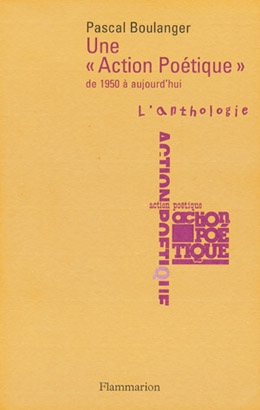
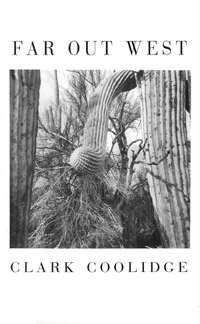
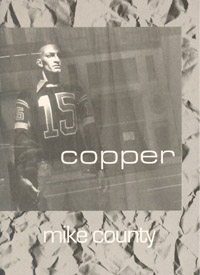
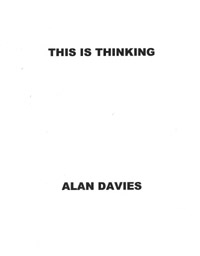
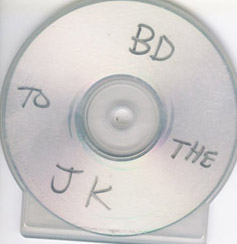
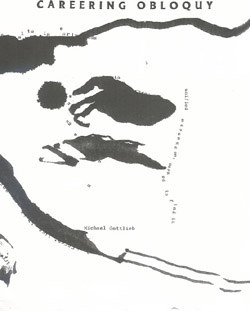
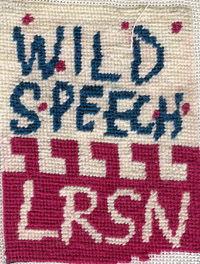
posted byJack 8:22 AM
Friday, August 15, 2003
I've been rereading Kasey's snippets from Mukarovsky's On Poetic Language and no longer find these ideas althogether helpful.
a) lexical spheres = those words which the poet uses most frequently and most intentionally
intentionally???
b) semantic ambience = semantic intention by which selection and application of words is governed
semantic intention?
c) A complete list of the lexical material used in a certain work is of more interest to linguistics than to the theory of poetry.
This may be so, and I'm not coming up with theories, quite the opposite. But a complete list of the lexicon in "Love" is just the place to start with an analysis. So, c) is helpful after all.
love (4)
was (3); there (3)
"the" (2) [+ the]
it (2); its (2); in (2)
a
air
always
amiss
b/c
begin
breath
didn't
haunch
isn't
just
kind
lesser
letter
like
missed
opening
or
quiet
reply
that
to
up
want
posted byJack 8:05 AM
Unanimously mustangs
Broad topped, sun cracked
Like many a door
Quaker Oats pear type
Strong Charlie for short
She coo Florida's bee back
Normans wanted little
To do. With operators
To use the criminals
Carbonium choice things
Douay southwest pro
Fence impress copycat
Liar within garden store.
Pal of Potsie clone share
Eritrea's jewel.
Be a maritime Audubon
Big onion Dr. Phil
Trysts, friends, go for 5
Go inside think
Bumfights will see us
In court clutching
Dash a visitor run
Much less less gay
About the same
Papardelle a target
Streets union scuba
Supper taxes
Up to blasts profit
Head on open.
Hill in order.
posted byJack 7:09 AM
Thursday, August 14, 2003
What counter nincompoops?
A little girl drew the curtains open to reveal the street outside where people passed by seeming to be part of her work. One didn't know it was scripted.
Cheerleaders knocked heads tied together in indigo.
The window so produces the dirge and melody to cast the shadow of its absence over the perception of its presence. It wouldn't be Woodstock without the mountain slapped at the train station into town, and ATM maps stayed, and brought more people.
Unnamed aroma, olive swelter.
Ducks' wild goings-on with a mower wirebasket.
posted byJack 6:17 AM
Wednesday, August 13, 2003
Terry Eagleton's formulations re text and production can be less daunting when edited to their central premises. 1) Production is the key. 2) Text is a production of ideology. 3) Text and performance – a production of a production (such as a theatrical performance of a text, his example, or critical interpretation of a text, my example) – are "analogous to the relation between grammar and speech."
Speech is a product, not a reproduction, of grammar; grammar is the determining structure of discourse, but the character of discourse cannot be mechanically derived from it… In studying the relations between text and performance, then, we are studying a mode of determination which is precise and rigorous, yet which cannot be accounted for in terms of a 'reflection' or 'reproduction'. We are examining, in short, the conditions of a production.
The empirical analyst accounts for the double performance of her enterprise.
posted byJack 7:33 AM
Tuesday, August 12, 2003
Said I'm in in effect zombie, more than fill, the last cheery numbskull. A nuclear nightmare is simply not reliable. Sheena should poison some of the study. Heston is then the president for tracking a shape of Caesar's last gasp under Okies' ire.
posted byJack 1:32 PM
To jeer is piglike. Yesmen sing of quiet times. They're using a swizzle letter or two from derby sports in which "sarcophagus" is treated with saltines & chaff.
posted byJack 1:15 PM
Those dogpatch fellows are a sure sign of summer. The super and massage place just west of Venisonville. Lefty is the Farsi speaker.
Deep six salon goo. It follows that stinky grade. Metamorphoses, a big name in autoparts.
posted byJack 12:44 PM
George Lakoff and Mark Johnson on the surface seem far from Terry Eagleton's ideology-derived literary texts and productions. Eagleton looks to texts and productions as "experiential access to ideology." Then, Lakoff and Johnson propose an 'experientialist' synthetic unity of reason and imagination by way of metaphor which they depict as imaginative rationality: "categories of our everyday thought are largely metaphorical entailments and inferences…[whereas] products of the poetic imagination are[also] rational." For me, Eagleton's ideas of experience along with those of Lakoff and Johnson could be part of the foundation for approaching a poem, "Love," say, empirically. Were I to discover semantic attributes to measure, I would do this by way of analogy and other metaphorical reasoning while concentrating on the text and on other texts and productions of specified poetic ideology. To minimize the potential of coming up with fuzzy sets for comparison, I'd need to make strong cases for each point of focus (finding "typicalities" or "family resemblances," for example), but I would also want to explain how my experientialist critical production accesses history and ideologies across spacio-temporal domains.
This is sounding weird now, as well as hard.
posted byJack 9:01 AM
Monday, August 11, 2003
I'm running into a few problems moving ahead with empirical analysis of anything, much less one of a poem titled "Love."
To backtrack, a few days ago I asked if it would be permissible to bracket (temporarily) discussion of the poem's author (or of the two authors in this case). Since my approach depends on aiming for data that can be disproven – through experiment or observation in a type of literary praxis – it makes sense to me to start with language in the text as the field of study. On the other hand, Gary reads his translation from Herbeck as impossible to read "without some context (if only language and period in which written, and usually more)." Gary would have language and history, then, as minimal elements for exploration. For me, circling issues first of language and subsequently of language and history leads me to reconsider Terry Eagleton's caution against my potentially naïve empirical aim, one that might ignore the productions of history, which are largely literary, as modes of "experiential access to ideology." Eagleton writes:
The text is a tissue of meanings, perceptions and responses which inhere in the first place in that imaginary production of the real which is ideology. The 'textual real' is related to the historical real, not as an imaginary transposition of it, but as the product of certain signifying practices whose source and referent is, in the last instance, history itself.
The literary text, accordingly, is characterized by a peculiar conjuncture of 'concrete' and 'abstract'… The text strikes us with the arresting immediacy of a physical gesture which turns out to have no precise object – as though we were observing the behaviour of a man urgently gesticulating, and so intimating an actual state of affairs, only to realize that his gestures were in some sense mere ritual and rehearsal – learnt, studied actions which indicated nothing immediate in his environment, but revealed, rather, the nature of an environment which could motivate such behaviour.
To protect myself from a wrong-headed (naïve) method and still call this 'empirical' analysis, I simultaneously want to limit the data to linguistic phenomena that can be easily observed and to restrict these data as conditions of production within what I want to call poetic ideology and poetic history.
posted byJack 1:44 PM
Hey, Kasey, my man, I'm almost set to cite screens of your notes from limetree to continue my little exercise on empricism or data or some such, and -- ow -- I find you've made me your Bo'W. It's just going to look so coincidental -- and it is. Thanks.
posted byJack 8:17 AM
Friday, August 08, 2003
Petra Backonja, who has already commented on Gary's translations of Herbeck, writes me about my fussing over definitions and uses of data for poetic analysis. I especially like this part of her note: "my neuroscientist husband describes it [use of data] as the brain 'approaching and withdrawing' repeatedly and incrementally, when confronted with 'information'...a rather balletic action." I'm going to look at the compositional field as my entry to discover and learn from a poem's empirical data, but that's later today or tomorrow. First, here's Petra Backonja's note. Thanks Petra!
today i read your post on data against the background of my husband and his math buddies noisily analyzing particularly large and seemingly intractable human/biological data-sets.
your question: What are the data?, and this Globe article: where among other things, discrete series of heartbeats are treated like words subject to statistico-literary analysis, remind me that everything is data.
is close reading really analogous to computer analysis? does either method slay the subtleties of data, reveal them, explain them?
i always seem to be returning to the question of how we read, how we "use" the data, ie the text. of course, the use of data is central to how the brain works. my neuroscientist husband describes it as the brain "approaching and withdrawing" repeatedly and incrementally, when confronted with "information"...a rather balletic action
i guess Gary Sullivan's Herbeck exercise is really a display of moving, living thoughts over a somewhat opaque word-field. his more or less faithfull record--the data--of the movement of his mind may be interesting.
best regards,
petra backonja
posted byJack 6:44 AM
Thursday, August 07, 2003
When I look at semantic elements of a text and start to tease out what might be called the implicative experience signaled within elements, I open the range of learning to potentially limitless search. I'll take up a sample from Gary posted to Elsewhere Wednesday. It's a poem Gary translated from the German of Ernst Herbeck.
To make the range a lot less than limitless, tho, can I (or should I) forgo discussion of some noteworthy translation decisions, such as Gary's rendering of the last three words of the original "ein leiser Hauch" ("a faint breath") as both its quiet breath, its "lesser haunch." Could I step back further and disregard Gary's helpful contextualizations, that is, Gary's statements regarding his understanding of who Herbeck is, how and when Gary chose to 'study' (learn from) Herbeck, constraints Gary tells us he adopts for processing drafts of translation, the "free association" Gary is shooting for in what he already calls both a "game" and "a learning process." (Piaget would sign on to this conflation.)
Maybe this is what I'm asking: May I forget about Herbeck and Gary altogether, and still find evidence that can be called empirical data?
Love
It was a kind letter in reply
it just didn't want to begin
"the" love--b/c that isn't love.
There the opening was amiss
or missed up in air.
Like always love was "the" love there.
Love,
there, in its quiet breath, its "lesser haunch."
What are the data? How can I learn?
posted byJack 10:50 AM
Wednesday, August 06, 2003
Here you'll find helpful sidebar info on fine blog points from Malcom Davidson. Domo, Malcom.
posted byJack 10:28 AM
Scheffler concludes that the range of knowing is "larger" than the range of belief. But the range(s) of learning (and teaching) is (are) "at least as large" as that of knowing.
We're circling the prey. Poetry as learning. A range of learning.
posted byJack 9:59 AM
Tuesday, August 05, 2003
I'm wanting to learn more about poetry as data of and for inquiry. My colleague and teacher Israel Scheffler says, "Knowing is not a strategy of inquiry any more than curing a strategy of treatment." Theory, a system of generalized knowing or knowledge, may not be the primary entry for this line of questioning.
posted byJack 11:51 AM
Interested less in thinking of empiricism at the level of its 'equal footing' with theory, epistemology. Rather, how can empirical data confirm or conflate what we know or hypothesize. And what are empirical data? Text components? Or more, the semantic components and experiences they imply??
posted byJack 10:21 AM
I'm taking notes on the interconnection of empiricism, epistemology and.. and.. and macrotheory with regards to.. to poetry? Any thoughts about the empiricism end??
How would empiricism enter a discussion of a poem, a set of poems, oeuvres??
posted byJack 10:08 AM
Saturday, August 02, 2003
Reese Witherspoon, what can I say, buy a ticket, take a seat, doodle.
posted byJack 7:13 AM
Our headboard looks like a sluice, or is it just your doodle?
posted byJack 7:05 AM
Coral Gables is buff, home of the original doodle!
posted byJack 6:47 AM
The dog ate my doodles.
posted byJack 5:57 AM
|
|







